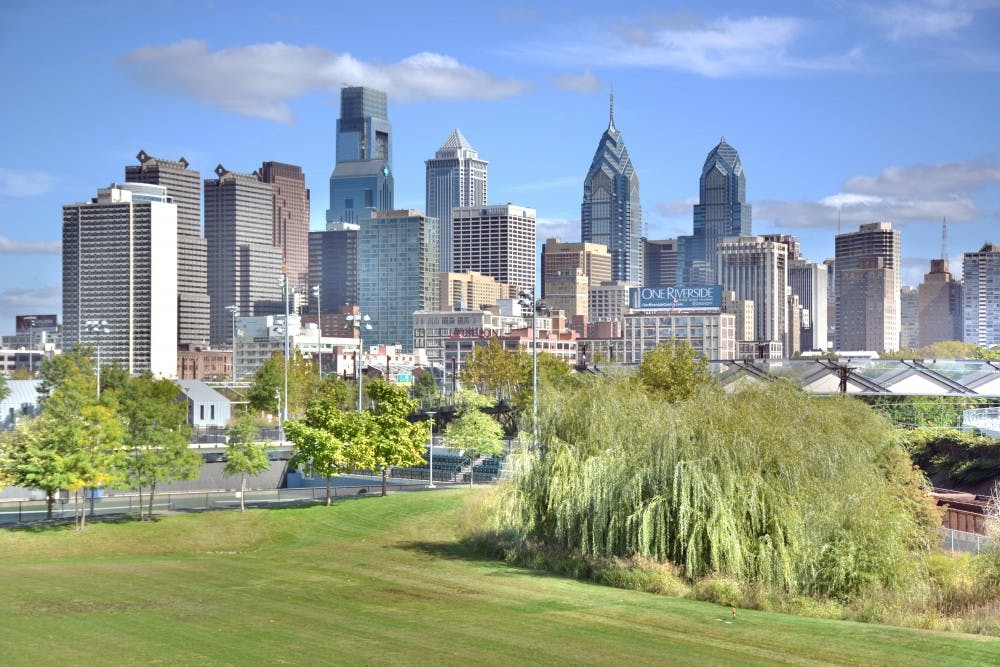Environmental advocacy group PennEnvironment announced at a press conference Thursday that Philadelphia is that Philadelphia is the second-smoggiest city in the Northeast.
The group challenged Congress, President Donald Trump and local legislators to respond. But just hours later, the Philadelphia City Council voted to suspend the city’s electric car program.
PennEnvironment — which is not affiliated with the University of Pennsylvania — found there were 97 days of unhealthy levels of smog in the Philadelphia-Camden-Wilmington metropolitan tristate area last year. There were also 212 days of elevated particulate matter levels, which PennEnvironment Campaign Organizer Ash Khayami said the report found was the fifth-highest in the country.
Exposure to unhealthy levels of air pollution can cause asthma attacks, respiratory illness and premature death.
Khayami fears Trump’s recent executive order that relaxed pollution standards and rescinded several environmental protection policies introduced by the Obama administration will worsen Philadelphia’s air quality even further. In addition, Trump’s proposed discretionary spending budget eliminates 31 percent of the Environmental Protection Agency’s funding.
Gretchen Dahlkemper, national field director of the group Moms Clean Air Force, is also concerned about recent developments from the White House. She encouraged local and national representatives to invest in clean energy.
“As President Trump rolls back 31 percent of the EPA’s budget, that means that cities like Philadelphia will not have the resources and the funds to clean up the air for our children ... But we still have an obligation here in Philadelphia to clean it up,” Dahlkemper said. “So our City Council, our mayor, our state, are going to have to fundraise to raise that money from our constituents to deal with the massive cuts to the Environmental Protection Agency.”
Dahlkemper specifically called for the continuation of Philadelphia’s electric vehicle program, under which electric car owners can pay the Philadelphia Parking Authority to install a curbside charger and an electric vehicle-only parking sign in front of their homes for about $4,000.
“When the burden to protect our children is now on the state and on the city, City Council is poised to roll back the electric vehicle permit act,” Dahlkemper added. “I urge City Council to reject this bill [to suspend the program] today, without putting another program in its place. Quite literately, our children’s health depends on it.”
PennEnvironment Deputy Director Adam Garber also voiced opposition to the Philadelphia City Council’s bill. He told The Daily Pennsylvanian that a suspension of the program would inhibit clean energy use and its health benefits, saying “we need cleaner cars to make sure we can all breathe easier.”
However, several hours after the press conference, the legislature moved to suspend the electric vehicle parking program.
2014 College graduate Matthew Pershe, a legislative aide to the law’s sponsor Councilman David Oh, told the DP that an amendment was being introduced later that day that would reinstall the electric car program if the City Council does not introduce a replacement in two years.
Garber, however, believes even a two-year pause could further threaten Philadelphia’s air quality.
“Putting a two year hiatus on [the electric vehicle parking program] to make us all breathe dirtier air that will cause more asthma attacks, more respiratory problems, and more heat attacks, is an unhealthy way for the city to move forward.” Garber said.









